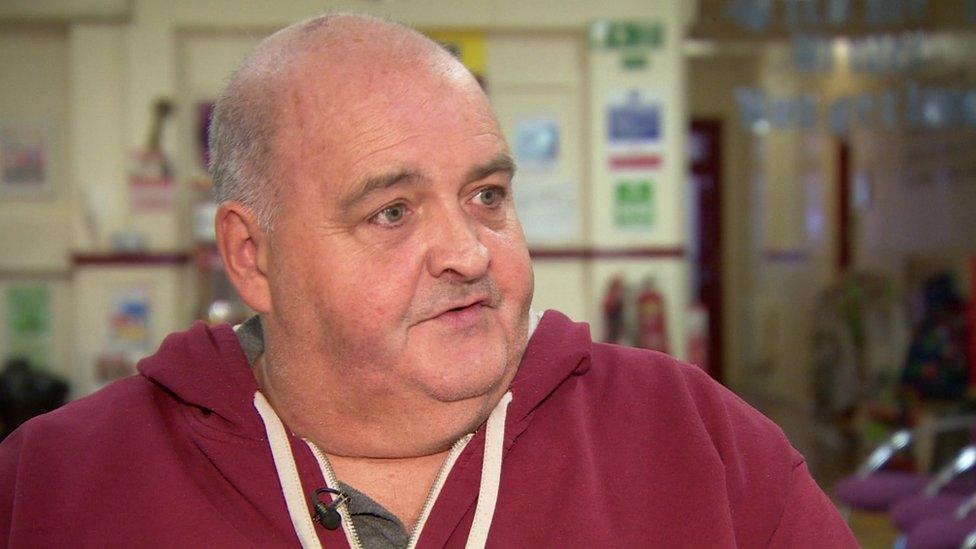ESA repayments: Terminally ill people are 'priority'
- Published

Terminally ill people who were short-changed with benefit payments are to be the priority for reimbursement.
The government says it is "scaling up" the team trying to identify underpayments, from 50 to 400 people.
Mistakes were made when incapacity benefit claimants were moved on to employment and support allowance (ESA) between 2011 to 2014.
The government said 300,000 cases were being reviewed, of which "just under a quarter" had been underpaid.
The BBC understands assessors wrongly calculated the income of about 75,000 claimants, which could cost up to £500m to put right.
Work and Pensions Secretary Esther McVey said in a written statement: "I can confirm that, based on departmental analysis, we will be prioritising any individuals whom we know from our systems to be terminally ill. Thereafter we will work through the cases identified as most likely to have been underpaid according to our systems.
"Once an individual is contacted, and the relevant information gathered, they can expect to receive appropriate payment within 12 weeks. I can also confirm that once contacted, individuals will be provided with a dedicated free phone number on which they can make contact with the department."
She added she was committed to ensuring "that all cases are reviewed and paid by April 2019".
Mistakes began in 2011, when the government started moving benefits recipients on to ESA - which is paid to those with long-term chronic health conditions.
ESA was introduced by the Labour government in 2008 to replace incapacity benefit.
The department said it had become aware of the problem in December 2016 after the Office for National Statistics published fraud and error figures for the social security system.
Frank Field, who chairs the Commons Work and Pensions Committee, has described it as a problem of "historic proportions" that "wrongly impoverished" many claimants.
- Published17 November 2017
